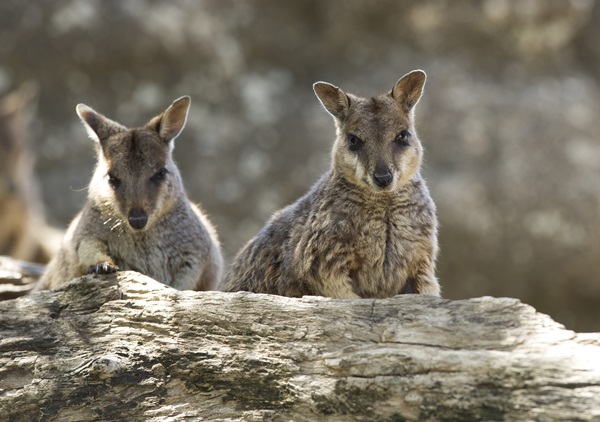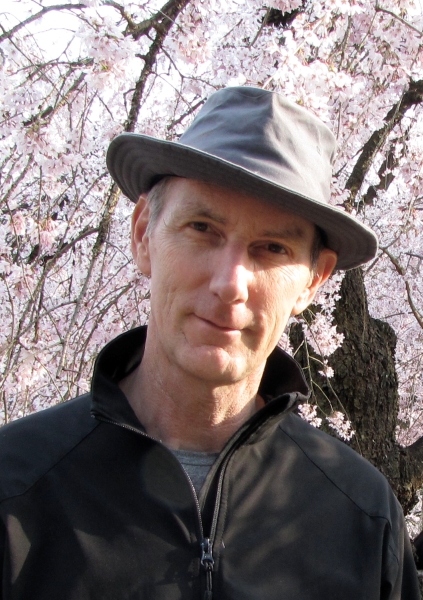Marcus Butler
2 November 2015: Understanding the emergence of new species of rock wallaby, an analysis of graduate employment opportunities in the creative sector, and a study of a unique type of filmmaking in Australia will share in Federal funding allocated to the University of Canberra today.
The University has received three Australian Research Council (ARC) Discovery Project grants worth more than $1.042 million in the latest round of funding.
Associate professor Janine Deakin's study on rock wallabies will help expand our understanding of evolution and the emergence of new species.
"The rock wallabies in Northern Queensland have been caught in the process of speciation or the splitting or diverging into new species. To find this happening at this very moment is rare and incredibly important," Dr Deakin from the University's Institute for Applied Ecology said.
"My study will examine the genetics of the rock wallaby population and our findings could shape future decisions regarding managing biodiversity."
Dr Deakin, who will receive $408,900 for her study, will collaborate with colleagues from the Australian National University, the Australian Museum and the University of Texas in the project.
The other two ARC grants have been granted to projects led by Centenary Research Professor Ross Gibson and Distinguished Professor of creative practice Jen Webb from the University's Centre for Creative and Cultural Research.
Professor Gibson will receive $363,359 to commence a four-year project to discover, document, analyse and compile a lasting archive of utilitarian filmmaking in Australia between 1945 and 1980.
Utilitarian film, he said, is "very different from the Hollywood-style cinema".
"These are the films commissioned by business, government or educational institutions, often as informative pieces. For example, you may see a film about home lawnmower's maintenance and use," Professor Gibson said.
"These films capture a lot of important information about the Australian culture and our way of life, but as we continue to develop in the digital era there is a real risk that old films could end up just thrown away."
Professor Webb, and her colleagues, professor in economics Phil Lewis and assistant professor in creative writing Scott Brook were awarded $270,477 to investigate employment outcomes for graduates in creative and cultural industries.
Professor Webb said there's a growing interest in people undertaking studies in creative and cultural fields, but seemingly few jobs at the end of their education.
"There are very few jobs available in the current Australian marketplace for artists. Mostly what happens is they make their careers themselves, working in jobs for which they are often over-qualified, while making art in their free time; or else working as volunteers in the cultural sector," she said.
"On the other hand there is an incredible demand for creative and cultural works and these sectors make a significant contribution to national GDP, but that money seldom flows down to artists.
"We expect to examine the contribution that people from a creative and cultural background make in other industries, such as government, education and business," Professor Webb said.
Dr Scott Brook, one of the chief investigators in Professor Webb's team, said he's interested in seeing how the Australian data compares to that being gathered in the UK.
"Our study will be the largest of its kind in Australia, and our collaboration with the King's College London will also mean it is the first ever international comparison of the value of university creative education for the creative workforce across the two nations," Dr Brook said.
"The biggest stakeholders in our research are the universities and students themselves. We'll be able to point out to the learning institutions that their graduates are working in various fields utilising transferrable skills and hopefully, they will better formulate their curriculum to enhance those employability skills," he said.
University of Canberra professors Robert Tanton, from the Institute for Governance and Policy Analysis' National Center for Social and Economic Modelling and Barbara Norman, Foundation Chair of Urban Planning and director of Canberra Urban and Regional Futures are part of a team led by the University of Melbourne which received a Linkage Project grant worth $805,000.
Their project aims to develop an urban analytics data infrastructure that builds on the Australian Urban Research Infrastructure Network to




